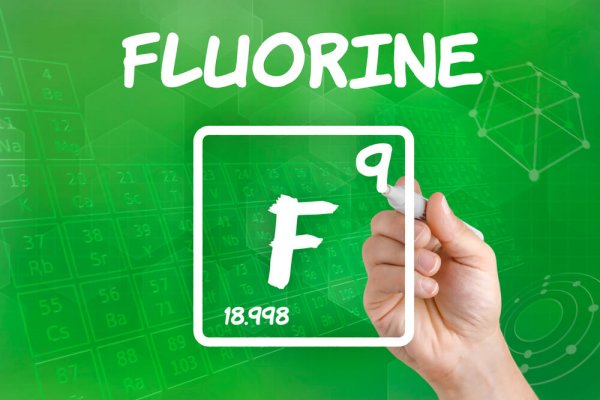Sources of Fluoride to Strengthen Your Teeth
Fluorine is a naturally occurring element that is found in abundance in the crust of the Earth. An ion of fluorine is fluoride, and it is found in water, food and soil. Medical researchers in the early 20th century found that people who lived in places with naturally high fluoride levels had fewer dental cavities than people who drank water with little to no fluoride in it. Because of fluoride’s ability to help protect the teeth from dental decay, many municipalities decided to add it to their drinking water as a means of improving the public’s health.
Fluoridated Toothpaste and Mouth Rinse
Many health and hygiene companies offer toothpaste or mouth rinse that contains fluoride. The American Dental Association recommends using a fluoridated toothpaste at least twice per day for brushing the teeth. The level of fluoride available in over-the-counter toothpaste or mouth rinse is usually 1 to 2 percent by weight. This level of fluoride is enough to help strengthen and repair the enamel of your teeth. Some people need more fluoride than what is available over the counter. Dentists are able to prescribe toothpaste and mouth rinses that contain 3 to 4 percent fluoride. These products are for people at a higher risk of dental decay and gum disease.
Tap Water
Many cities put fluoride in their tap water. The level of fluoride is set by the Environmental Protection Agency. The tap water is regularly tested in order to ensure that the level of fluoride is within healthy limits. Drinking two to three glasses of fluoridated water provides your teeth with about the same amount of fluoride as brushing your teeth with an over-the-counter fluoridated toothpaste. If you usually drink bottled water, you will need to check on whether it is sourced from a fluoridated supply. Water filters often remove fluoride from the water.
Fluoride Treatments From the Dentist
People who live in places without fluoridated water might need a fluoride treatment at their dentist’s office. This treatment is often recommended to children who have deep pits or crevices in their teeth or who are at a higher risk of developing cavities. The fluoride applied at the dentist’s office is brushed onto the enamel of the teeth with a little brush. It should be left on the teeth for about four to six hours without brushing. The professional fluoride treatment can be done once or twice per year at routine dental cleanings.
What Happens If You Do Not Have Strong Dental Enamel
If you do not have strong dental enamel, bacteria digesting the sugars in your mouth will easily erode the enamel. Those eroded areas could become cavities. A cavity that extends into the pulp of your tooth could result in tooth loss. The loss of a tooth affects both your ability to chew and the look of your smile.
At Good Samaritan Dental Implant Institute, we offer dental implants as an oral surgery for functional needs. Dental implants can also serve as a cosmetic procedure for a person who has lost one or more of their teeth. The oral surgery process for dental implants is straightforward, and it has become the gold standard of cosmetic procedures for replacing a missing tooth. We offer consultations and answer questions if you need to replace a tooth that is damaged, weak or missing. Contact us today to learn more.

